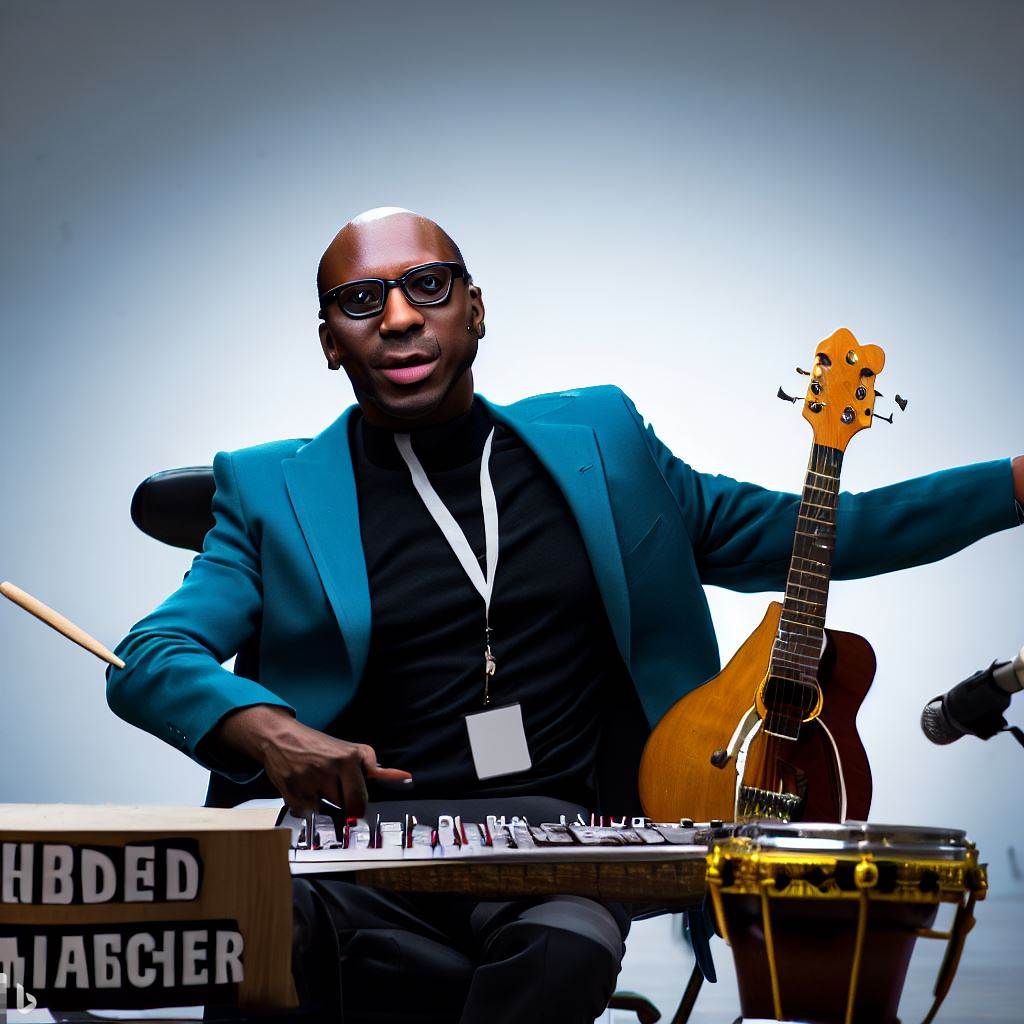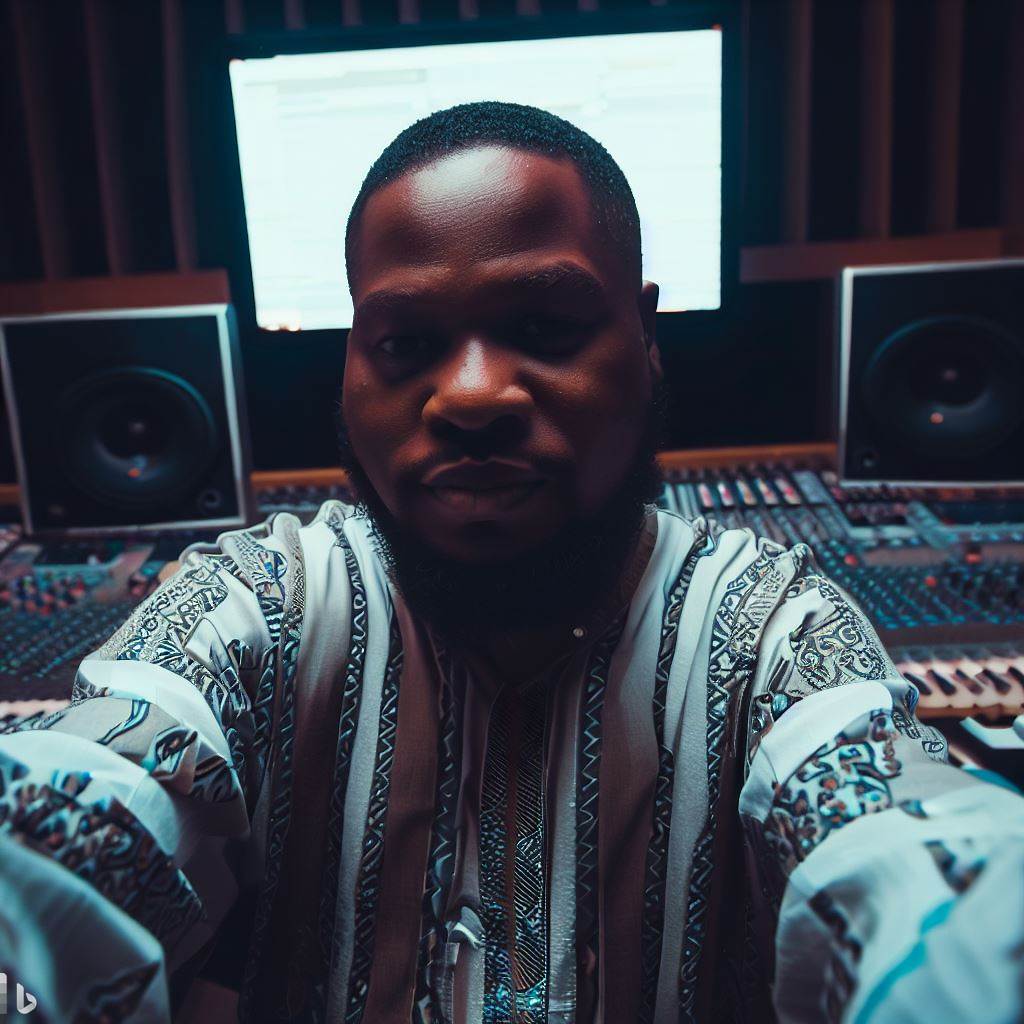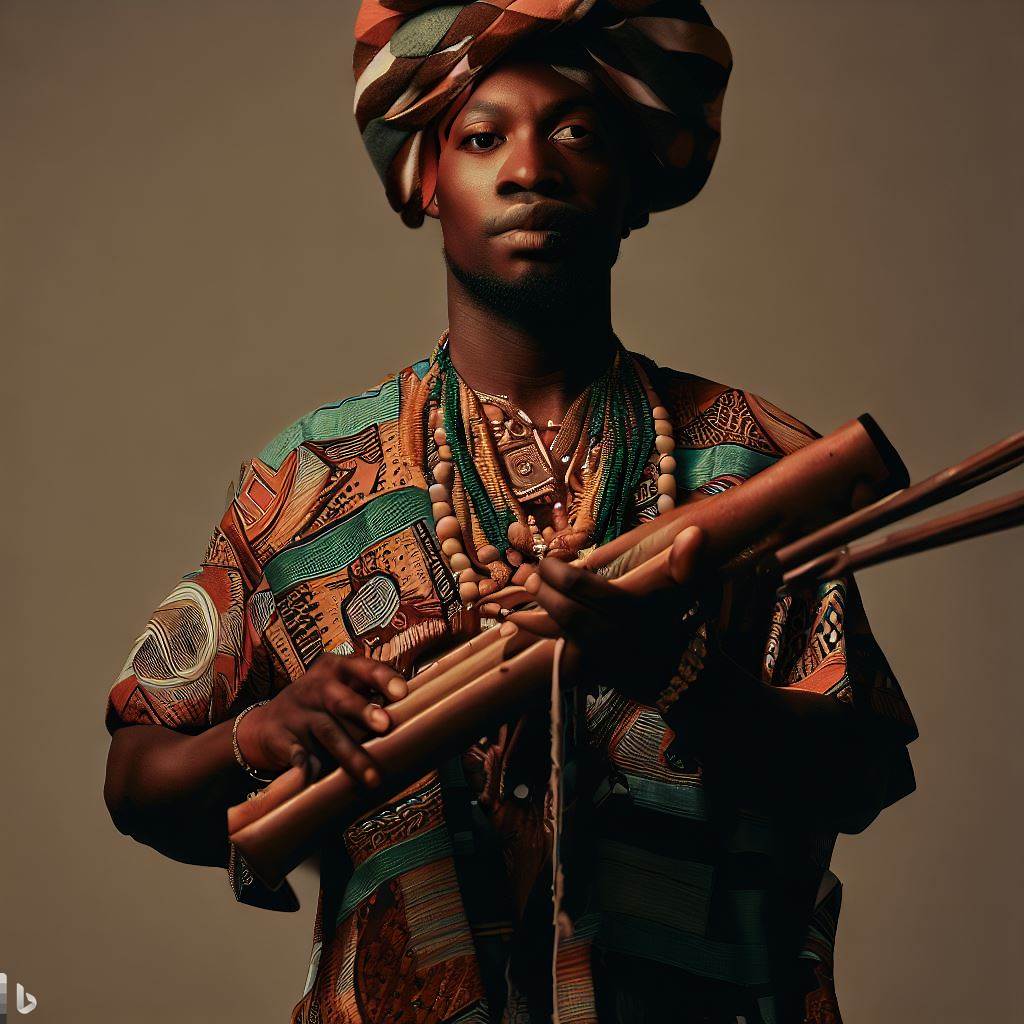Introduction
Importance of music education
Music education plays a crucial role in preparing individuals for a director role in Nigeria.
Overview of the director role in music education in Nigeria
Not only does it provide cultural significance, but it also helps preserve Nigerian heritage while contributing to cognitive and social development.
The Essence of Music Education
- Introduction: Music education is a transformative force, shaping young minds, nurturing creativity, and fostering cultural appreciation.
- Foundation of Learning: It serves as the cornerstone of holistic education, enhancing cognitive, emotional, and social development.
- Cultural Heritage: Music education in Nigeria preserves and celebrates the nation’s rich and diverse musical traditions.
The Director Role in Music Education
- Leadership: Music directors in Nigeria are pivotal figures who lead, inspire, and guide music programs to success.
- Curriculum Development: They design and implement curriculum, ensuring students receive a comprehensive music education.
- Talent Cultivation: Music directors identify and nurture musical talents, providing opportunities for students to excel.
- Community Engagement: They connect with communities to promote the value of music education and support local talent.
- Artistic Direction: Directors oversee performances, shaping the artistic direction and quality of musical productions.
- Advocacy: Music directors advocate for the importance of music education in Nigeria’s educational landscape.
In the forthcoming chapters, we will explore the path to becoming a music director in Nigeria, the skills required, and the opportunities and challenges in this role.
Stay tuned to embark on a journey toward shaping the future of music education in Nigeria.
Importance of Music Education in Nigeria
In Nigeria, music education ignites creativity, fostering cultural preservation and self-expression.
It enhances cognitive skills, improving learning.
By nurturing musical talents, it empowers future generations to embrace diversity and strengthen social bonds.
Music education is a pathway to well-rounded individuals, fostering discipline and teamwork.
Through practical skills and theoretical knowledge, students acquire a deeper appreciation for arts and culture.
Moreover, it can serve as a potential career path, contributing to economic growth.
In a country rich with musical heritage, education ensures its continuity.
Let’s recognize music education’s pivotal role and allocate resources to enrich young minds and harmonize the nation’s future
Discussing the cultural significance of music in Nigeria
- Music is deeply rooted in Nigerian culture, serving as a means of cultural expression.
- It plays a significant role in various ceremonies, festivals, and social gatherings.
- Nigerian music is diverse, representing the country’s rich cultural heritage and ethnic diversity.
- Through music education, individuals gain a deeper understanding and appreciation of their cultural background.
Explaining how music education helps preserve Nigerian cultural heritage
- Music education helps in safeguarding traditional Nigerian music forms from being forgotten or lost.
- By learning traditional instruments and songs, future directors can pass down their knowledge to younger generations.
- Preserving Nigerian cultural heritage through music contributes to the country’s identity and pride.
- Music education ensures the continuity of Nigerian music traditions, enhancing cultural sustainability.
Highlighting the benefits of music education on cognitive and social development
- Music education enhances cognitive skills, such as memory, attention, and problem-solving abilities.
- Playing musical instruments develops fine motor skills and hand-eye coordination.
- Collaborative music activities promote teamwork, communication, and social interaction.
- Music education fosters creativity, self-expression, and emotional intelligence.
- Participating in musical performances boosts confidence and self-esteem.
- It provides a platform for personal growth, discipline, and perseverance.
Overall, music education in Nigeria holds immense importance.
It not only preserves the cultural heritage but also contributes to cognitive and social development, which are vital qualities for aspiring directors.
By recognizing the impact of music education, Nigeria will continue to nurture talented individuals who can lead and contribute to the country’s rich musical landscape.
Read: Training Opportunities for Aspiring Foley Artists in Nigeria
Qualifications for a Director Role in Music Education
Academic requirements
- Advanced degrees and certifications can also enhance qualifications.
- Bachelor’s degree in music education or related field
Relevant experience
- Teaching experience in music education is crucial for a director role.
- Leadership roles in music programs or organizations demonstrate competence.Participation in professional development activities enhances skills and knowledge.
Achieving a director role in music education in Nigeria requires meeting specific qualifications.
This section will explore the academic requirements and relevant experiences necessary for aspiring directors.
Academic requirements play a significant role in preparing individuals for a director role in music education. The first essential academic requirement is a bachelor’s degree in music education or a related field.
This degree provides a strong foundation in music theory, pedagogy, and performance.
Furthermore, advanced degrees and certifications can greatly enhance an individual’s qualifications.
In addition to academic qualifications, relevant experience is vital for aspiring directors.
Teaching experience in music education is crucial in understanding the intricacies and challenges of classroom instruction.
It helps directors develop effective teaching strategies, classroom management skills, and the ability to assess and evaluate student progress.
This continuous professional growth fosters innovation, enhances teaching methods, and ensures a director remains up-to-date in a rapidly evolving field.
The qualifications for a director role in music education in Nigeria encompass both academic requirements and relevant experiences.
A bachelor’s degree in music education or a related field serves as a foundational requirement, while advanced degrees and certifications enhance qualifications.
Read: Creating Authentic Sounds: Tips from Top Nigerian Foley Artists
Skills and Competencies for a Director Role
Musicianship skills
- Proficiency in playing musical instruments
- Strong vocal skills
- Ability to read and interpret sheet music
Communication and leadership skills
- Excellent verbal and written communication skills.
- Ability to lead and motivate a team
- Effective organisational and time management skills
Pedagogical knowledge and skills
- Knowledge of music theory and history
- Ability to develop curriculum and lesson plans
- Expertise in teaching various musical styles and genres
In order to excel in a director role in music education in Nigeria, it is crucial to possess a set of essential skills and competencies.
These skills, ranging from musicianship to communication and pedagogical knowledge, play a significant role in preparing an individual for the challenges and responsibilities of this position.
Musicianship skills
- Proficiency in playing musical instruments: A director should have a high level of expertise in playing at least one musical instrument to effectively guide and instruct students.
- Strong vocal skills: The ability to demonstrate and guide students in vocal techniques is vital for a music director.
- Ability to read and interpret sheet music: A director must possess strong sight-reading skills and be able to accurately interpret sheet music to teach students.
Communication and leadership skills
- Excellent verbal and written communication skills: Effective communication is essential for conveying musical concepts and instructions to students, parents, and staff.
- Ability to lead and motivate a team: A director must possess strong leadership skills to inspire and motivate their team of music educators and students.
- Effective organizational and time management skills: Managing schedules, resources, and events requires strong organizational and time management abilities.
Pedagogical knowledge and skills
- Knowledge of music theory and history: A director should have a comprehensive understanding of music theory, history, and composers to provide a well-rounded music education.
- Ability to develop curriculum and lesson plans: Designing appropriate curriculum and lesson plans catering to different skill levels and age groups is crucial for a music director.
- Expertise in teaching various musical styles and genres: A director should be well-versed in different musical styles and genres to provide a diverse and comprehensive education to students.
By possessing these skills and competencies, a music director is better equipped to handle the challenges and demands of the role.
These qualities not only contribute to the overall success of the music program but also impact students’ musical growth and development.
Therefore, individuals aspiring to become music directors should focus on honing these skills through continuous learning and professional development opportunities.
Read: Challenges and Solutions for Nigerian Foley Artists: A Discussion

Training and Development Opportunities in Nigeria
Available Music Education Programs and Institutions
- University of Lagos: Offers a Bachelor’s degree in Music Education, providing a comprehensive foundation for aspiring music educators.
- Obafemi Awolowo University: Known for its prestigious music department, offering undergraduate and postgraduate programs in Music Education.
- Nigerian College of Music: Provides a range of music education programs, including diplomas and certificates, focused on practical training and performance.
- National Teachers’ Institute: Offers distance learning programs and professional development courses in music education for practicing teachers.
- State and Federal Colleges of Education: These institutions offer specialized music education programs to train teachers for primary and secondary schools.
Workshops, Seminars, and Conferences for Music Educators
- Music Educators’ Summit: An annual conference that brings together music educators from across Nigeria to discuss current issues and share innovative teaching strategies.
- Music Education Workshops: Organised by various universities, colleges, and music associations, these workshops provide hands-on training for music educators.
- National Association of Music Educators (NAME) Conference: A national gathering that offers professional development opportunities through workshops, lectures, and networking.
- Music Education Seminars: Conducted by renowned music educators and experts, these seminars focus on specific topics like curriculum development and classroom management.
- Music Teachers’ Professional Development Program: A series of workshops and training sessions organised by government agencies and music associations to enhance teaching skills.
Professional Music Associations and Networks for Support and Growth
- Music Educators’ Association of Nigeria (MEAN): A national association that promotes music education and provides a platform for networking and professional development.
- National Association of Nigerian Musicologists (NANM): Dedicated to advancing research in music education, this association organizes conferences and publishes scholarly journals.
- Music Teachers’ Association of Nigeria (MTAN): A professional organization that supports music teachers through workshops, mentorship programs, and competitions.
- Nigerian Musical Society (NMS): Alongside promoting music appreciation, this society organizes events and competitions to encourage music education and talent development.
- Online Music Educator Forums and Groups: Platforms like Facebook groups and online forums allow music educators to connect, share ideas, and seek support from their peers.
In Nigeria, aspiring music educators have a variety of training and development opportunities.
Universities like the University of Lagos and Obafemi Awolowo University offer comprehensive music education programs, while institutions like the Nigerian College of Music and National Teachers’ Institute provide practical training.
Additionally, workshops, seminars, and conferences, such as the Music Educators’ Summit and NAME Conference, offer avenues for professional growth.
Professional music associations like MEAN, NANM, MTAN, and NMS provide support, networking opportunities, and resources for music educators.
Furthermore, online forums and groups act as platforms for virtual collaboration and information exchange.
With these options, Nigerian music educators can enhance their skills and contribute to the growth of music education in the country.
Read: Nollywood and Animation: An Unfolding Narrative
Challenges and Future Prospects
Addressing the challenges faced by music educators in Nigeria
- Limited funding and resources: Music educators in Nigeria often struggle to access adequate funding and resources necessary for their teaching and professional development.
- Lack of awareness about the importance of music education: Many individuals, including policymakers and parents, do not fully comprehend the value and benefits of music education, leading to a lack of support.
Discussing opportunities for growth and development in the field
- Collaboration with international music organizations and schools
Music educators can benefit from partnerships and exchanges with international institutions, which can provide access to expertise, resources, and diverse perspectives. - Advocacy for increased government support and policies
It is crucial for music educators in Nigeria to advocate for better government support and policies that prioritize music education as an essential component of the curriculum.
Music education in Nigeria faces several challenges that hinder its growth and development.
These challenges must be addressed to ensure a brighter future for aspiring music educators and students alike.
One significant challenge is the limited funding and resources available to music educators.
Inadequate financial support hinders educators from delivering quality instruction, obtaining instruments, attending professional development, and enhancing teaching skills.
As a result, students may not receive the education they deserve, and educators struggle to stay motivated under these constraints.
Another obstacle in the Nigerian music education landscape is the lack of awareness among policymakers and the general public about the importance of music education.
Many individuals fail to recognize the numerous benefits that music education offers, including cognitive development, emotional expression, and overall well-being.
This lack of understanding leads to a diminished support system for music education, making it difficult for educators to garner the resources and recognition they need.
Conclusion
Music education in Nigeria is crucial as it promotes cultural preservation and creativity.
Aspiring music directors should not be discouraged by the challenges but rather embrace them with determination.
In closing, music education plays a vital role in shaping the future of Nigerian music, ensuring its growth and development.
Recap of Importance:
- Cultural Heritage: Music education safeguards Nigeria’s diverse musical traditions, ensuring their continuity.
- Holistic Growth: It nurtures well-rounded individuals by enhancing creativity, cognition, and emotional intelligence.
- Artistic Pioneers: Music education fosters future artists, composers, and educators who contribute to Nigeria’s musical landscape.
Encouragement:
To budding music directors in Nigeria, embrace challenges with unwavering passion. Every obstacle is a stepping stone to success.
Closing Statement:
Music education is the orchestra that shapes Nigeria’s musical destiny, forging a harmonious and culturally rich future.




